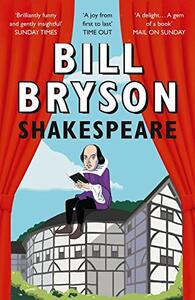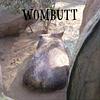Take a photo of a barcode or cover
Refreshingly succinct. Bill Bryson offers the historical evidence of Shakespeare's life and times without all of the suppositions most authors employ to flesh out the elusive bard. And yet one gets the idea of the poet's spirit. Nice counterpoint to all of the crazed theories of anti-Stratfordians. And yes, he does devote a short last chapter to debunking the more common arguments for Bacon, De Vere, and Marlowe as alternatives.
For even more information on Shakespeare's Stratford family, here's a link to a recent documentary showcasing newfound information concerning Mary Arden, Wm Shakespeare's mum. http://youtu.be/kmpiY5kssU4
For even more information on Shakespeare's Stratford family, here's a link to a recent documentary showcasing newfound information concerning Mary Arden, Wm Shakespeare's mum. http://youtu.be/kmpiY5kssU4
I enjoyed this brief biography. Bryson provides information and stories in a witty way. It’s fast-paced, easy to read and I truly feel like I’ve learned more about Shakespeare, about England, and about the theater.
Though we know so little about the man, there is evidently still a lot to write about! We get to hear more about the people who lived around the same time as Shakespeare and other things we DO know for certain, as well as learn about the many rumors (and which of them can be dismissed). It was an interesting book! Very much enjoyed it...
A fascinating little read that explores more the unknowability of Shakespeare than the life of the man himself. Bryson writes concisely and manages to cut through much ineffectual (and often spurious) debate regarding claims of the playwright's identity, history, works, and status, without falling to the temptation of proposing spurious claims of his own. Some readers have taken offense to the fact that he shoots down theories without providing his own, but this is exactly his point: given the extremely limited, though still substantial in comparison to other playwrights of the age, evidence regarding Shakespeare's personal and professional lives, it is IMPOSSIBLE to really know much at all.
The book reads as an entertaining, insightful jab at the battle between critical scientific thought and historical romanticization, a concise but compelling overview of Elizabethan and Jacobean England, and a sobering reminder that history, once lost, can not be rebuilt out of nothing.
The book reads as an entertaining, insightful jab at the battle between critical scientific thought and historical romanticization, a concise but compelling overview of Elizabethan and Jacobean England, and a sobering reminder that history, once lost, can not be rebuilt out of nothing.
A breezy, funny tour through some of the very few facts known about Shakespeare. I imagine this book might not provide anything new for someone who already knows plenty about the Bard's life and times, but for someone like me—very familiar with the plays but not at all knowledgeable about the man—it's an excellent introduction to Shakespeare's career, the vagaries of Elizabethan and Jacobean society, and arcana such as the disputes over the various Folios. Bryson includes a brief but incisive analysis of Shakespeare's plays as a whole, adds a touch of amused wriness to his descriptions of sixteenth-century London, and ends with a fine chapter dismissing every silly "contender" for Shakespearean authorship, from Bacon to Oxford. Highly recommended.
I hadn't realized how little actual information there is about Shakespeare--nor how truly bizarre some of the theories about other people having written Shakespeare's work really are. Even having known about the famous "First Folio," I had no real concept of of how the "collected works" may have come to us.
It was a short, engaging read about a fascinating subject.
It was a short, engaging read about a fascinating subject.
lighthearted
fast-paced
This is a great biography about a guy that is almost impossible to write a biography about, and that's the central conceit of the book. Most of what we know about Shakespeare is speculation, so it's nice for a book to boil down all of the real info and discuss the rest in the context of what's known and what isn't.
The fun part of the book is the context of the time period and what that involved. There are three anecdotes I especially loved. First, people loved sugar so much during Shakespeare's time that having black teeth was a status symbol of having enough money to afford the stuff to the point that some people without the means to have their teeth blacken from eating too much sugar actually started dyeing their chompers in order to look wealthier. Second, bear baiting was a thing but sometimes people got bored with setting giant mastiff dogs on a bear chained to the ground or bears were too expensive to keep sacrificing that way. Instead, they'd chain a monkey to a horse that was chained to the ground and set dogs on that. It was insane. Third, towards the end of her life, Queen Elizabeth had zero effs to give because her face was permanently caked in a mask of white make-up, most of her teeth were black of missing (Thanks, sugar!), and she had taken to loosening her dress so "that it forever hung open [and] you could see the whole of her bosom."
It's an inside baseball Shakespeare book, but I really enjoyed it.
The fun part of the book is the context of the time period and what that involved. There are three anecdotes I especially loved. First, people loved sugar so much during Shakespeare's time that having black teeth was a status symbol of having enough money to afford the stuff to the point that some people without the means to have their teeth blacken from eating too much sugar actually started dyeing their chompers in order to look wealthier. Second, bear baiting was a thing but sometimes people got bored with setting giant mastiff dogs on a bear chained to the ground or bears were too expensive to keep sacrificing that way. Instead, they'd chain a monkey to a horse that was chained to the ground and set dogs on that. It was insane. Third, towards the end of her life, Queen Elizabeth had zero effs to give because her face was permanently caked in a mask of white make-up, most of her teeth were black of missing (Thanks, sugar!), and she had taken to loosening her dress so "that it forever hung open [and] you could see the whole of her bosom."
It's an inside baseball Shakespeare book, but I really enjoyed it.
I have read all of Bill Bryson's books, so couldn't pass this by. I'm very happy I didn't. Bryson shed a new light on Shakespeare for me in describing not just what is known, but also what is not. A thoroughly entertaining and informative book. I listened to the unabridged Audible version. Bryson's narration is splendid, as always.
A historiography of life in Britain in the late sixteenth & early seventeenth centuries. A penpic of the playwright, with a neat final chapter on the reception of his work in the ensuing centuries.





